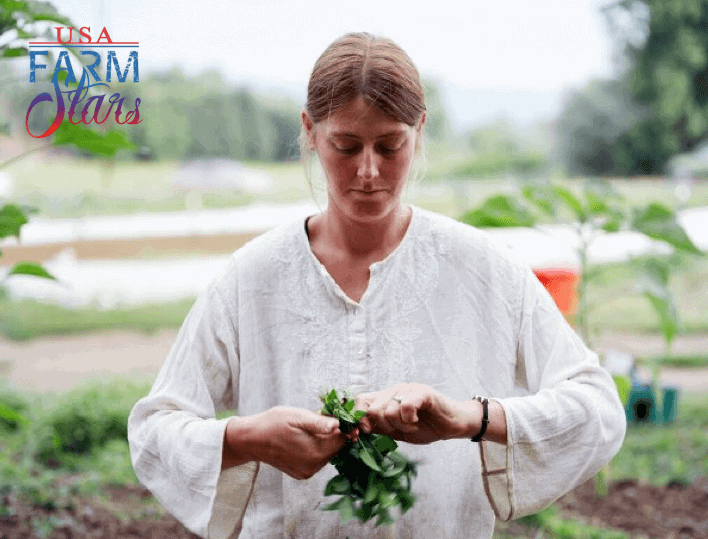
AGE: 36
HOMETOWN: Huron, New York
FARM NAME & LOCATION: Cure Organic – Boulder, CO
FARM TYPE/CROPS: Diversified organic vegetables, pastured meat, flowers
WHY WE CHOSE ANNE:
Passionate about farming and interested in bringing more young people into the agriculture world, Anne believes that it takes a whole community to make farming work; she has created Cure Organic, the perfect family farm that demonstrates this. From work on her CSA farm, her farm store, and her educational workshops she truly has created a wonderful haven for her locals, visitors, and employees.
FAVORITES:
- Music: Folk.
- Food: Whatever is in season.
- Thing to do after work: Be a mom
I worked on a farm as a summer job in college, loved it, and worked for great people who inspired me to keep growing food.
What do you think a big MISCONCEPTION is about farming?
Most people don’t realize how much food you can grow on a small amount of space. You don’t need a huge amount of space to grow food for a village.
What’s your relationship status?
I’m married - my husband Paul works on the farm.
Do you have children? Do they help on the farm?
I have two, yes.
What is your attitude about money?
Money can’t buy you happiness, but can provide opportunity.
Where is the farthest you’ve traveled? Where would you like to go?
Europe and Central America is the farthest I’ve traveled. I would like to go where tea is grown in southern India.
What was the hardest part about getting started in farming?
The most difficult part was putting together all the natural resources - finding land with a natural water source.
What SURPRISED you about farming?
How much community education is involved- customers, volunteers, interns. They’re all hungry for agrarian way of life.
Tell us about a day on the farm; when does your day start and end?
Starts 5:15 am- listening to messages from chefs, harvest day, harvest lists. Animals get let out and fed by 6, morning meeting with staff for day outline, head out as group, harvest greens, bunch greens, herbs, tender crops in before sun gets too high, move into harvesting roots for restaurants, lunch at 12:30 – 1:30. After lunch finish harvesting for restaurant because chefs need their food by four pm. Paul does deliveries. We wash, pack, harvest for markets, CSA and the farm store and leave fields at 5:30. Then there are farm chores like watering the greenhouse and cleaning wash station. Finally at six or seven I get to be a mom for the rest of the night, then I sleep.
What makes you HAPPY in a day on the farm?
Walking the fields and seeing how everything has changed from the day or week before. Seeing the growth changes everyday makes me happy.
What makes you FRUSTRATED?
What makes me frustrated is just one of those days, when someone takes a few hours out of that day, or days seem shorter than they should be.
What’s the BEST part of the day?
The best part of the day is when I’m with the field crew, working on a project, taking enjoyment in what they’re doing, seeing the crew being so excited and happy for what they’re doing, which is growing food for people. The other things are being at market at CSA, handing food I’ve grown to the people who will eat it.
What’s the WORST part of the day?
No bad part of the day, that’s what’s great about farming. You might never know what you’ll get thrown, but it doesn’t matter.
Any lessons learned on the farm?
So many, each day. Farming is so much about observation, paying attention to clues nature is giving you, observing and being aware, learning to help customers with what they’re looking for, and paying attention to the environment.
Is there anything concerning you right now about the future of farming?
A lot of environmental pressures with unknown outcomes, fracking, GMO’s. We need to sit back and observe to know what’s going, how we should impact our environment and affect our food supply.
Anything to say to those who aren’t farmers?
You’re alive because of farmers, so it makes good sense to connect with a farm in your community to know where your food comes from; form a relationship with the people and the land.
Where do you think you'll be in 5 or 10 years?
Depends on the day of the week - Monday is tractor day, Tuesday is harvesting, and Wednesday is distributing to CSA. Basically, doing what I do now.



Comments